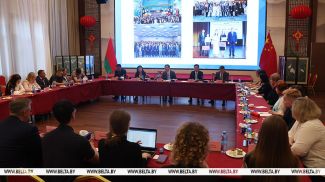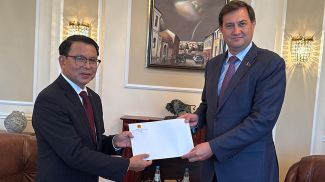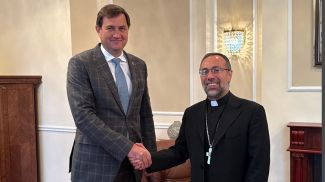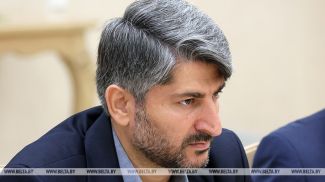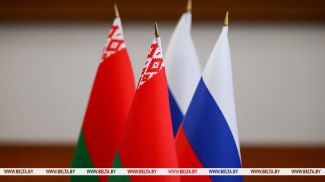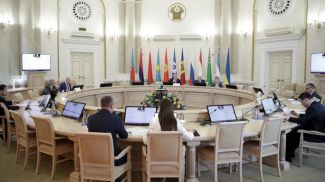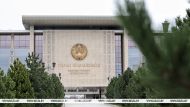MINSK, 25 January (BelTA) - Belarus poses no threat to regional and global peace and security, Anatoly Glaz, Head of the Information and Digital Diplomacy Office, Press Secretary of the Belarusian Ministry of Foreign Affairs, told the media as he commented on the recent informal event on media freedom in Belarus, BelTA has learned.
“Permanent Representative of Belarus to the UN Valentin Rybakov indicated our attitude towards this action as relevant and complete as possible. Belarus does not pose a threat to regional and global peace and security, does not threaten the integrity and sovereignty of other states and interfere in their internal affairs. It is difficult for me to imagine that anyone in their right mind would claim otherwise. Well, no one is immune from morbid fantasies and inflamed perceptions. You can draw your own conclusions from here,” said the spokesman of the Belarusian Ministry of Foreign Affairs.
He said it was encouraging that Belarus' partners were of the same opinion: “I cannot help but note in this context the statement by Russian Ambassador Vasily Nebenzya. I am sure that most of the UN member states are also very clear about this.”
The spokesman of the Belarusian Ministry of Foreign Affairs cited the data of Reporters without Borders that 50 journalists were killed last year in connection with their professional activities, with two-thirds of them in “peaceful countries”. “Just these days we are witnessing the arbitrary blocking of multimillion social media accounts for expressing an alternative point of view, which has shocked the international community. Everyone is aware of specific cases of mass filtering of content for political reasons and so on. However, by skillfully feigning concern for media freedom, some countries have initiated an action against our country. The goals are clear,” said Anatoly Glaz.
The discussion followed the Arria Formula, which means, it was informal in nature. The process is named after Venezuelan Ambassador Diego Arria, who initiated the practice in 1992. Any member of the UN Security Council can convene meetings using this format and invite speakers from public figures or NGOs. Other countries cannot block the meeting, but it is not held in the Security Council chamber and no resolutions or other official documents are produced. Other members of the Council may refuse to participate in the meeting if they wish.




